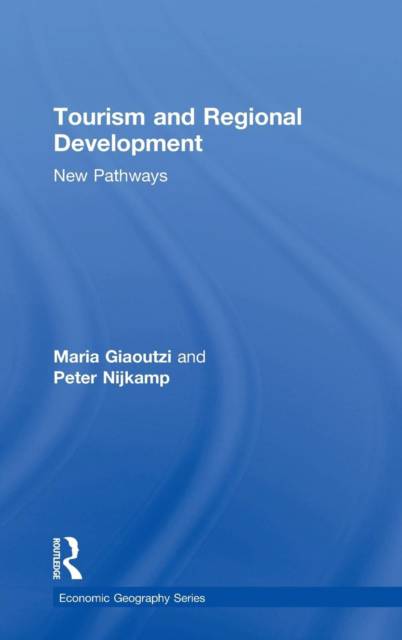
- Afhalen na 1 uur in een winkel met voorraad
- Gratis thuislevering in België vanaf € 30
- Ruim aanbod met 7 miljoen producten
- Afhalen na 1 uur in een winkel met voorraad
- Gratis thuislevering in België vanaf € 30
- Ruim aanbod met 7 miljoen producten
Zoeken
Omschrijving
Tourist visits used to be a less common activity in the past. However, more people than ever now make leisure trips, making this an era of mass tourism. This drastic change in spatial behaviour is not only caused by economic prosperity, but the scale of this phenomenon means that it is able to generate economic growth, making tourism a key factor in regional development policy. One of the main challenges of current regional policy is to market the attractiveness of an area, thereby increasing tourist visits and subsequent revenue. In particular, regions are attempting this through the use of Information and Communication Technologies (ICT), which offer information on interesting places, and efficient methods for organizing and booking trips. This book examines the interconnections between tourism, ICT and regional development. Bringing together a range of European case studies illustrating various ICT and policy innovations, it not only critiques current activity by regions in terms of tourism development, but also considers how this sector is likely to continue to grow.
Specificaties
Betrokkenen
- Auteur(s):
- Uitgeverij:
Inhoud
- Aantal bladzijden:
- 322
- Taal:
- Engels
- Reeks:
Eigenschappen
- Productcode (EAN):
- 9780754647461
- Verschijningsdatum:
- 24/05/2006
- Uitvoering:
- Hardcover
- Formaat:
- Genaaid
- Afmetingen:
- 156 mm x 234 mm
- Gewicht:
- 625 g

Alleen bij Standaard Boekhandel
+ 580 punten op je klantenkaart van Standaard Boekhandel
Beoordelingen
We publiceren alleen reviews die voldoen aan de voorwaarden voor reviews. Bekijk onze voorwaarden voor reviews.











